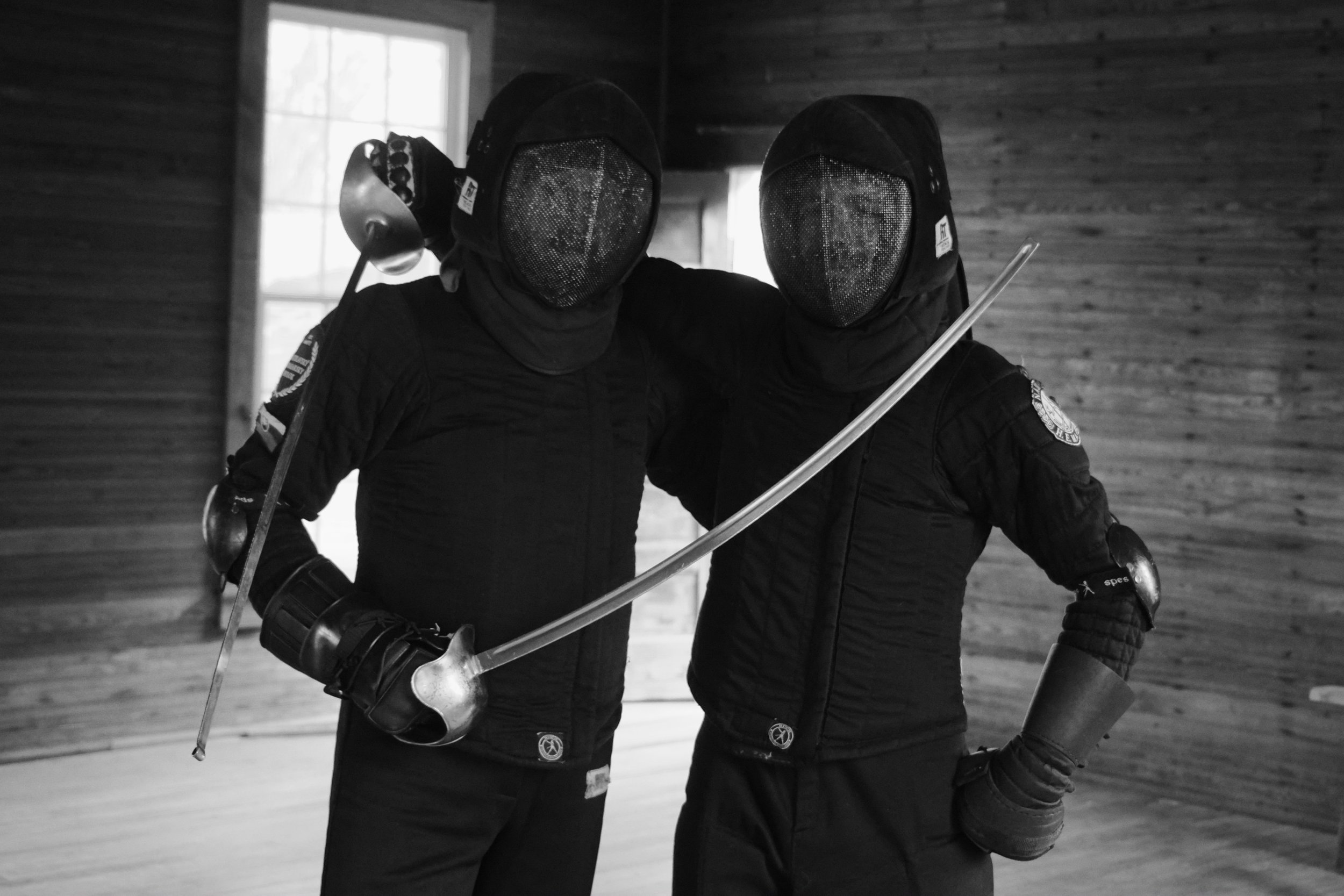
Our Values
NSHF aims to cultivate a culture of Respect, Honor and Excellence, both inside and outside the fencing hall. Our values are rooted in the european fencing tradition, we seek to not only revive these historical martial arts but also the classical virtues of self-development that accompany them. recognizing the opportunity that studying the sword offers us - we aim to develop our body, sharpen our mind, and cultivate a strong spirit. When you start taking fencing seriously, beyond just a casual interest, when you earnestly seek to become skillful with a blade, the path of the sword naturally becomes a way of self-development, to holistically develop the Body, Mind and Spirit. Furthermore, since ancient times, combat arts have always been tied to martial and ethical virtues, for self-mastery is the only way to achieve great things through discipline. The 14th century fencing master Hanko Dobringer, a disciple of Johannes Liechtenauer, in his fencing treatise expressed this ethos of personal development and virtue in the study of the sword:“Practice your art by necessity, honestly and never in foolish vanity. Then you will always remain a good and true man, a true swordsman. For thus is the art of the sword thought out, that you should practice truly in a spirit of chivalry.”
– Hanko Döbringer, Hs.3227a, c.1389AD
By practicing HEMA, we are Reviving and breathing life into martial arts that were long forgotten centuries ago. it is truly a unique pursuit where many different spheres converge - the study of ancient manuscripts and historical time periods, the physical training of ancient techniques and the subsequent challenge this gives us in our own lives - to reflect on our own way of living in the modern world and to develop ourselves physically as well as strengthen our mental fortitude, even test our abilities in competition. The manuscripts written by medieval and renaissance fencing masters abound with advice and caution for the aspiring fencer, it is no surprise that the ideals of Chivalry grew out of the martial prowess and heroism of the knight on the battlefield and into daily life.Thus learning the art of the sword beckons us to consider the art of a virtuous life, where we not only aim to better ourselves but also those around us in a spirit of Chivalry and camaraderie.Chivalry and the Cardinal Virtues
The chivalric code grew out of the warrior culture of the middle ages, governing the Knight’s behavior both on and off the battlefield. The idea that one’s physical and martial prowess should also be balanced by a strict code of virtue and morality was a unique development of the medieval period. the ideals of chivalry have had a lasting influence to the present; with many of our western values such as honor, integrity, respect, duty and manners emerging from these ideas.Chivalry embodies a set of ideals that extend beyond mere combat prowess to encompass a moral framework often defined by the cardinal virtues. These virtues—prudence, justice, fortitude, and temperance, form a set of four fundamental moral principles. From antiquity to the present, the Cardinal virtues have fundamentally influenced Western thought for millennia. “Cardinal” derives from the latin term “Cardo” meaning “Hinge,” thus implying that all other virtues hinge upon these four, which apply as both Martial and ethical virtues. 1. Prudence: is the virtue of wisdom and Knowledge. making thoughtful decisions that consider the implications of one’s actions. considered the "charioteer" of the virtues, prudence involves the ability to judge correctly, make sound decisions and lead responsibly. It encompasses wisdom, discernment, and foresight, allowing individuals to navigate complex situations, considering the implications of one’s actions and making decisions that benefit not only themselves but also consider the welfare of others. 2. Justice: is the virtue of fairness and the moral obligation to uphold what is right and true. Guided by justice, the chivalrous individual upholds the moral balance and protects the innocent and those who cannot defend themselves, ensuring all receive their due rights. It emphasizes the importance of morality and the pursuit of the common good. 3. Fortitude: is the virtue of courage and strength, the determination to confront fear, pain, or adversity. Not only bravery in battle but also resilience in upholding values; strength of character and resilience despite risk and social pressure. It empowers individuals to stand firm in their convictions and actions, even in the face of challenges. 4. Temperance: is the virtue of moderation and self-control. encouraging restraint and self-control over pleasure, ambition and recklessness. tempering desires and impulses with humility and grace. promoting the idea that one should not be ruled by excess or indulgence. This virtue supports a disciplined approach to life, fostering harmony within oneself.The integration of the cardinal virtues promotes a holistic approach to honor and ethics. Chivalry, therefore, is not merely about martial skills or noble birth; it is a lived expression of virtue that speaks to the character and moral integrity of an individual. In contemporary contexts, the principles of chivalry still offer us valuable lessons, reminding us of the importance of virtuous behavior to better both ourselves and those around us.



